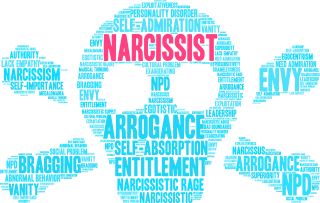
Hillel the Elder was asked some 2000 years ago, “what is the essence of the Torah?” He replied “What is hateful to you, do not do to your fellow: this is the whole Torah.” This is one form of the Golden Rule: “Do not do unto others what you would not have them do unto you.” “Avoid malevolence, avoid harming others.”
The better-known positive version of the Golden Rule is “do unto others as you would have them do unto you.” In other words, treat others benevolently, as presumably you would wish to be treated. Both versions emphasize shared humanity and empathy, encouraging us to put ourselves in the shoes of others.
Religion scholar Karen Armstrong’s book Twelve Steps to a Compassionate Life (reviewed in 2015 by Maria Popova) heralds the Golden Rule and compassion, sorely eroded by ultra-capitalism, and the extreme individualism and contempt for the common good that come bundled with it. Armstrong points out that the Chinese sage Confucius was one of the earliest Axial age philosophers who emphasized the Golden Rule.
“When asked which of his teachings his disciples should practice most tenaciously, “all day and every day,” the Chinese sage Confucius (551–479 BCE) pointed to the concept of shu, commonly translated as “consideration,” which he explained as striving “never to do to others what you would not like them to do to you.”
The Golden Rule tells us not to view others with apathy, or as inferior, or as enemies – common narcissistic, solipsistic, or even nihilistic paradigms which lead to harm. All religions and wisdom traditions underscore some version of the Golden Rule, admonishing us against narcissism, solipsism, and nihilism. Meaning, and even connection to a higher power, is thus found in connection to others and their suffering, not in affiliation solely for advantage.
Loving others, doing good to them, and even loving one’s enemies, are part and parcel of all religions and wisdom traditions as well. Indigenous beliefs recognize interdependence and fundamental equality of all life. Chief Seattle famously said “what we do to the web of life we do to ourselves.” Rabbi Jonathan Sachs points out that the Torah contains 39 commands to love the stranger. The Ten Commandments implicitly admonish believers to not devalue others and thus harm them by killing, stealing, lying, etc. Christ’s Sermon on the Mount places high value on humility, meekness, righteousness, and making peace.
The Bhagavad Gita states “the best person is one who feels the joy and suffering of others as his own because he sees the same soul in all.” The prophet Mohammed said “[n]ot one of you truly believes until you wish for others that which you wish for yourself.” Buddhism’s ultimate target is the self-centered ego itself, which gives rise to greed, hatred, jealousy, and all their sequelae. Buddhist practice for me has meant cultivating lovingkindness, compassion, and mindfulness of feelings and thoughts in order to bounce back from distress and generate more fruitful mental states and actions towards other beings.
This is all in line with relational cultural theory’s primary insight: “suffering is a crisis in connection; the opposite of suffering is belonging.” The Golden Rule helps promote safety and mutuality in belonging.
There seems to be broad agreement that we must strive mightily against abusive power, both individually and collectively. Of course – we don’t always stick to the high road, and people don’t always practice what they preach. And of course, religion can amplify factionalism and abusive power as well – thus the critical importance of the separation of church and state, allowing religion to focus on spiritual and communal development.
Dr. Harvey Max Chochinov proposed in a 2022 article that physicians hold themselves to a “Platinum Rule”: “do unto patients as they would want done unto themselves,” a higher bar that asks us to really sit close to and ally with a suffering person’s vulnerability, needs, and perspectives. Working in systems that do not honor the patient or the doctor-patient relationship is a major source of burnout. Physicians get much of their joy in the end-of-the-day belief that their work can help other human beings. When systems don’t support that joy, they become demoralized.

Partisan divides combined with general dissatisfaction create new challenges for the Golden Rule, amplifying possibility for demoralization, burnout, and loss of joy in the American experiment. When we are distressed and unhappy, it becomes harder for some to view and treat people well, particularly those considered “others” – a particularly dangerous prospect for such a wonderfully diverse nation as ours.
Times of distress and disaster often bring out our better angels as well. Rebecca Solnit’s A Paradise Built in Hell details that:
“The most startling thing about disasters, according to award-winning author Rebecca Solnit, is not merely that so many people rise to the occasion, but that they do so with joy….It points to a new vision of what society could become – one that is less authoritarian and fearful, more collaborative and local.”
But can we build paradise out of the “hell” of our current partisan divide, dissatisfaction, and suffering?
A large percentage at the extremes of each political party’s followers believe the other side is taking the country towards destruction, despite agreement on key issues in the broad middle. To some extent, party leadership is at fault for generating these all-or-nothing views of the other side in order to amplify fear and ride these to victory. Still, many if not most people did not vote to generate an “enemies list” targeted for harassment or elimination, yet that is what is being threatened.
The Golden Rule is a major inheritance of our long human history. It is humanity’s greatest generational wealth, and to my mind as important a basic need as food, water, and shelter, and embedded in our own Declaration of Independence as a resistance to the distinctly un-golden, exploitative rule of British Monarchy. We should guard and cultivate it like the treasure it is, and amplify its reach to all corners of society. Amplified fear, hatred, and division can take us away from its truth.
No matter our ethnicity, color of skin, gender, or even immigration status, we’re all human, and in this country, we’re all part of the same nation, deserving of the protection of laws and norms that prevent and sanction harm and harmful intent. How we individually and collectively practice the Golden Rule impacts how we view and judge, value and devalue each other, and will determine the fate of the nation.
(For a discussion of the “umami rule” of self-compassion, see this post.)
© 2024 Ravi Chandra, M.D., D.F.A.P.A.
